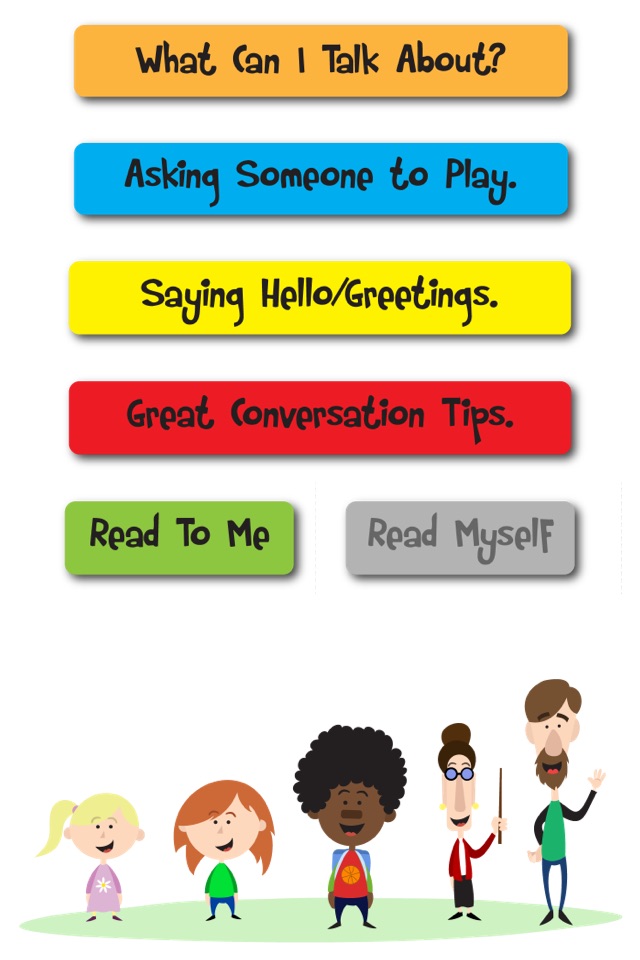
Conversation Social Stories & Simple PECS Communication Tool
Conversation social stories is made up of four social stories about different conversational skills and simple communication tools to go with them.
The stories focus on greetings, asking someone to play, what to talk about in a conversation and tips for great conversations. Some of the stories include square buttons with images that play whatever part of the conversation the the story is about. The buttons are similar to PECS in that they have a picture that represents the idea, and then play a message when tapped.
**********
The app opens up to table of contents to choose which of the four stories to read. Some of the stories have buttons that play examples of things to say when each one is pressed. The stories focus on important conversational skills including greetings, asking someone to play, tips on where to stand, how to end a conversation and many more!
Starting or maintaining a conversation can be difficult for any child, and may be especially difficult for children diagnosed with an autism spectrum disorder, Down syndrome or other special need.
Children with special needs often need more direct instruction of social skills like conversations.
Teaching conversational skills to any child may be easier and less stressful when visual supports, like social stories are used. This social story explains accurate social information and ensures that your child will know what to expect when having a conversation.
Social stories are an important type of visual support often used with children diagnosed with an autism spectrum disorder, Down syndrome or other special need. This social story uses simple text and descriptive pictures to explain why and how to initiate, maintain and end a conversation.
Social interactions, such as conversations may be especially difficult for children with an autism spectrum disorder. Many children, especially those diagnosed with an autism spectrum disorder, Down syndrome and other special need, often fail to pick up on social cues, making learning a social skill especially difficult. Social stories may increase awareness of how to initiate and maintain a conversation.
Social stories were first defined by Carol Gray in 1991 and are commonly used to break down a task or social situation into small and easy to understand steps, often accompanied by descriptive pictures. Social stories are incredibly easy to implement and are used by many professionals for a wide range of behaviors.



